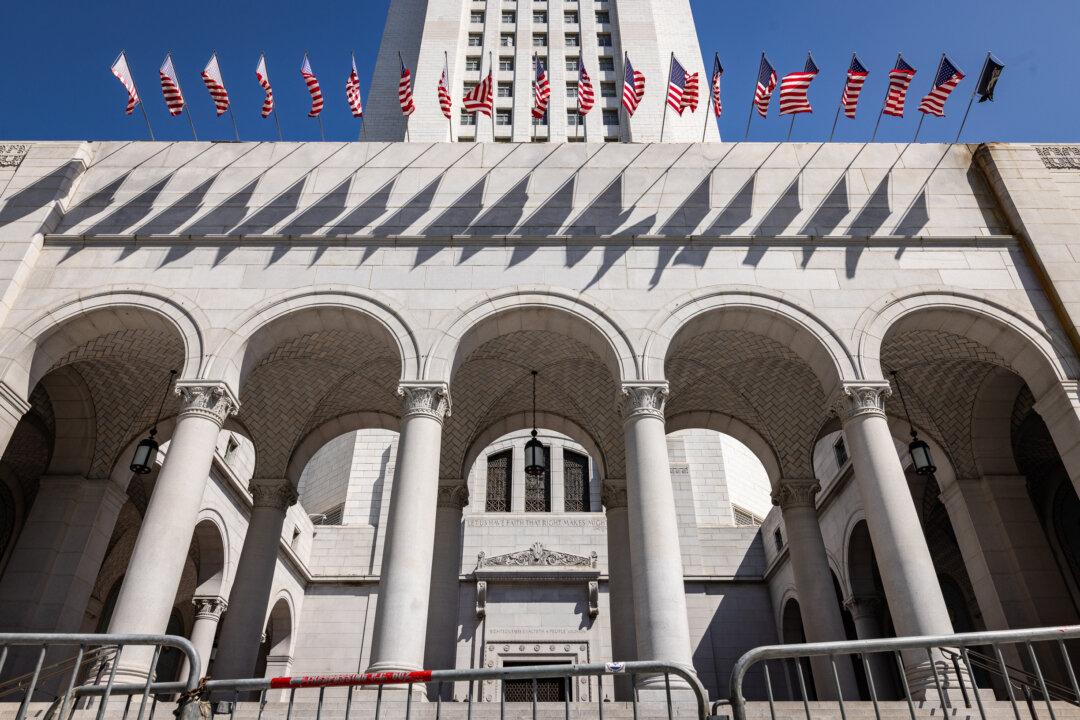The city of Los Angeles overpaid police pensions this fiscal year by about $40 million, Los Angeles City Controller Kenneth Mejia announced in a social media video on May 20.
The overpayment comes at a time when the city’s financial picture is “dire” as it faces a $1 billion budget deficit and hundreds of staff layoffs, he said.





